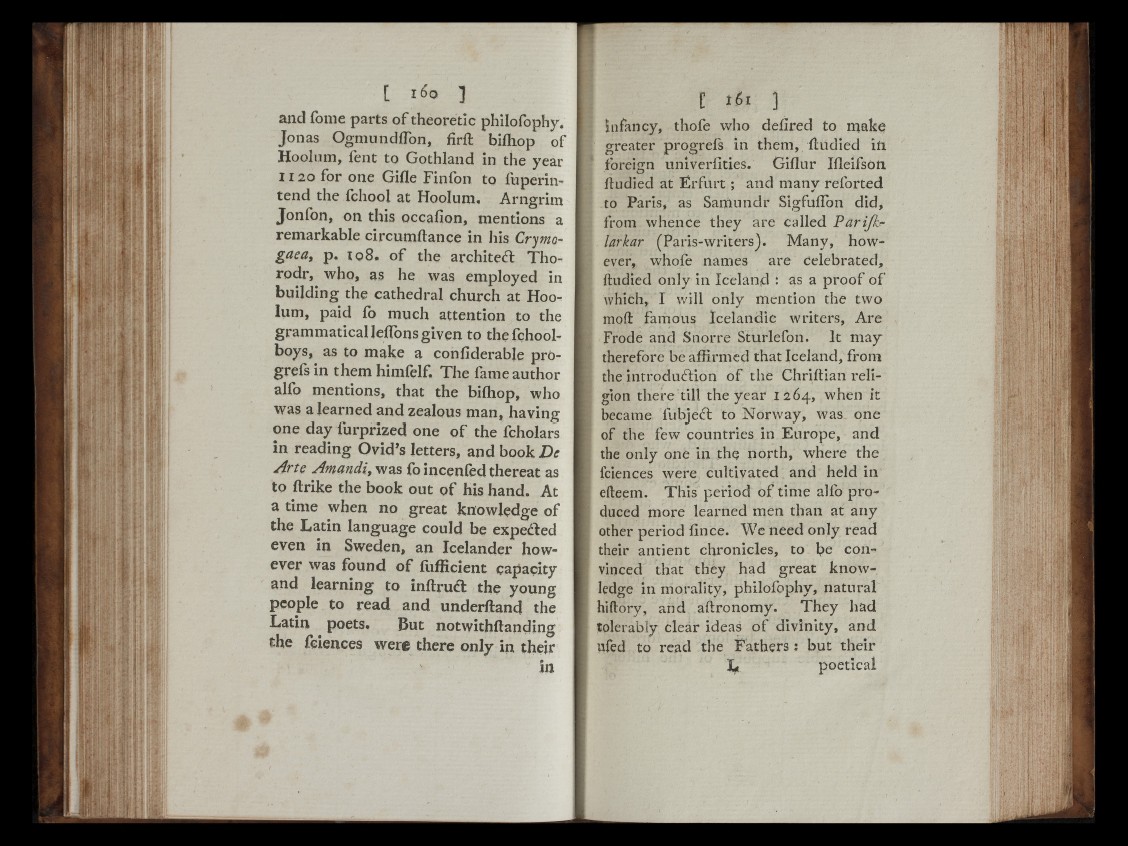
I f t PI I i ,
and fome parts o f theoretic philofophy.
Jonas OgmundiTon, firil biihop of
Hoolnm, fent to Gothland in the year
1 1 20 for one Giile Finfon to iiiperiii“
tend the fchool at Hooluni, Arngrim
Jonfon, on this occafion, mentions a
remarkable circumflance in his Crymo-
gaea, p. io8. o f the archlteil Tho-
rodr, who, as he was employed In
building the cathedral church at Hoolum,
paid fo much attention to the
grammatical leflbns given to thefchool-
boys, as to make a coniiderable progrefs
in them himfelf. The fame author
alfo mentions, that the biihop, who
was a learned and zealous man, having
one day furprized one o f the fcholars
in reading Ovid’s letters, and book D<r
A r u Amandi, was fo incenfed thereat as
to ftrike the book out p f his hand. At
a time when no great knowfodge of
the Latin language could be expedled
even in Sweden, an Icelander however
was found o f fufficient capacity
and learning to inilruft the young
people to read and underftand the
Latin poets. But notwithilanding
the ieiences were there only in thejr
in
infancy, thofe who defired to make
greater progrefs in them, iludied in
foreicrn univerfities. O Giflur lileifson
iludied at E r fu r t ; and many reforted
to Paris, as Samnndr SigfuiTon did,
from whence they are cAled Parijkr-
larkar (Paris-writers). Many, however,
whofe names are celebrated,
ftudied only in Iceland i as a proof o f
which, I will only mention the two
moil famous Icelandic writers. Are
Frode and Snorre Sturlefon. It may
therefore be affirmed that Iceland, from
the introduflion of the Chriftian religion
there till the year 1264, when it
became fubjecl to Norway, was. one
of the few countries in Europe, and
the only one in the north, where the
fciences were cultivated and held in
efteem. This period o f time alfo produced
more learned men than at any
other period fince. Wc need only read
their antient chronicles, to be convinced
that they had great knowledge
in morality, philofophy, natural
hiftory, and aftronomy. They had
tolerably clear ideas of divinity, and
ufed to read the Fathers: but their
L poetical